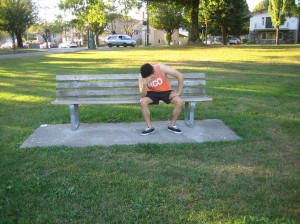Fact Checked
Mitral valve regurgitation is when the mitral valve of the heart does not close tightly and allows the blood flow to return back into the heart. The blood could not move through the heart or to the rest of the body and will result to tiredness and out of breath.
Symptoms of mitral valve regurgitation
- The blood flow intense through the heart or there is heart murmur
- There is shortness of breath or dyspnea when engaging in physical activities or when lying down.
- Experiencing fatigue during an increase in activities
- There is cough during night, especially when lying down
- Sensations of a rapid, fluttering heartbeat or heart palpitations
- The feet and ankles are swelling

Causes of mitral valve regurgitation
- Mitral valve prolapse it is a condition where the leaflets and tendon-like cords that functions in supporting the mitral valve will weaken and stretch. With each contraction of the left-side ventricle, the valve leaflets will prolapse to the left-side atrium and will result to mitral valve regurgitation.
- The tissue cords that anchor the coverings of the mitral valve to the heart wall can suddenly tear, especially in people suffering from mitral valve prolapse. It can be repaired by heart surgery.
- Rheumatic fever is a complication of inadequately treated strep throat or scarlet fever can damage the mitral valve and can result to a mitral valve regurgitation in the future
- An infection of the lining of the heart also known as endocarditis can involve the valves of the heart.
- A heart attack can cause damage to the area of the heart muscles that functions in supporting the mitral valve. You can register for first aid training so that you will be prepared to handle a heart attack.
- Cardiomyopathy which is the abnormality of the heart muscle. A condition like high blood pressure causes the heart to work harder, causing enlargement of the left-side ventricle of the heart and this can stretch the tissue found around the mitral valve and results to leakage.
- Babies that were born with defects in their hearts and also damaged heart valves also known as congenital heart defects.
- Extended use of ergotamine which is used to manage migraines and other similar conditions can eventually progress to mitral valve regurgitation.
Treatment and home remedies
- Eat a heart-healthy diet like foods that does not directly affect the mitral valve regurgitation and a healthy diet helps prevent other disease that can cause weakening of the heart muscle. Foods that are low in saturated and Trans fat, sugar, salt and refined grains like the white bread. Eat a variety of fruits and vegetables, whole grains, and proteins like lean meats, fish and nuts.
- Check the blood pressure regularly; it is important if the person has mitral valve regurgitation.
- Maintain a healthy weight range that is advised by the doctor
- Minimize consumption of caffeine like coffee or soft drinks
- Minimize alcohol since excessive use of alcohol can cause cardiomyopathy. It is a condition of weakened heart muscles that can result to mitral regurgitation.
- Exercise regularly but it will depend on the severity of the condition and the intensity of the exercise.
- Visit the doctor regularly.
